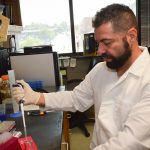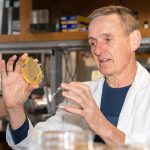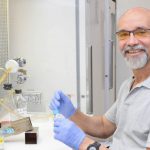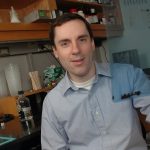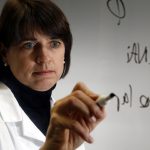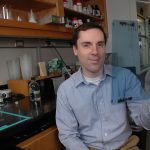OMRF scientist Roberto Pezza, Ph.D., received a two-year grant to study the development of chromosomes.
birth defects
OMRF receives $1.4 million to study cell division
OMRF scientist Dean Dawson received a four-year grant to study chromosomes and the cellular processes that organize them during cell division.
OMRF receives $2.1 million to study cell division
OMRF scientist Gary Gorbsky, Ph.D., will use the funds to pursue general research projects related to cell division.
Discovery could explain cell division errors in cancer
New findings provide a better understanding of how cells replicate, and it could help outline how and why this process goes wrong in cancer.
OMRF researchers discover role of proteins in chromosome packaging
OMRF researcher Susannah Rankin has new information on how chromosomes organize themselves in cells.
OMRF receives grant to study triggers of cancer, birth defects
OMRF has received a five-year, $1.7 million grant to look at how DNA replicates itself.
